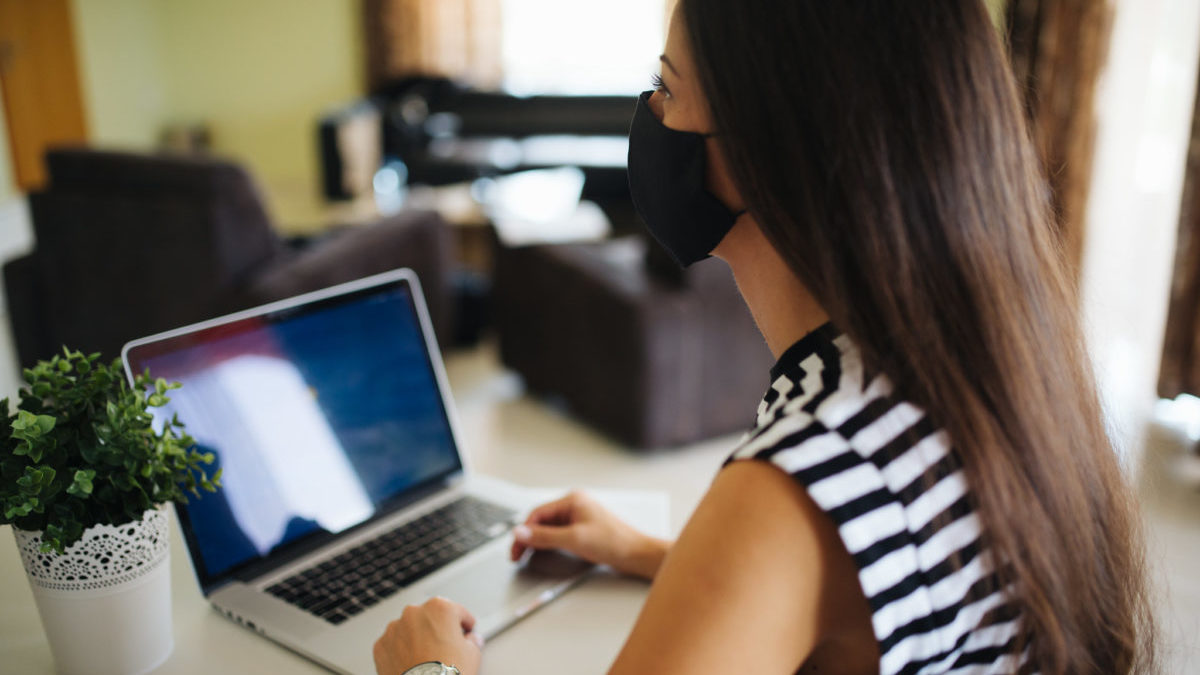Poetic Justice is an advice column that offers better advice to submissions at other publications whose advice has failed the reader.
The New York Times’ ethicist columnist counseled a reader Tuesday to reveal his colleagues’ Covid diagnosis and vaccination status at the office in an effort to “encourage greater vigilance,” i.e., Covid compliance.
The full submission from the anonymous reader is below:
I work in an office with cubicles six feet apart, but we are all up and about throughout the day. We are supposed to wear a mask every time we step outside our cubicles, but for short interactions that often does not happen. The C.D.C. says the risk is higher if people are within six feet of one another for a total of 15 minutes in a day. That is probably the case for all of us. My closest cubicle mate is unvaccinated and came down with COVID. He did not tell anyone, but I found out, and I am furious that he exposed me and did not tell me. He is now out on quarantine, having told others it was a different illness.
Therapists are expected to break the confidentiality glass and tell a target if his or her life is in danger. Can I do the same? If he exposes us carelessly, our lives could be in danger. I could wear an N95 all day, I suppose, but what about the others? In any case, such measures are not foolproof. Given his carelessness and refusal to be vaccinated, and the real possibility that he could be reinfected, is it ethical to share the fact that he has COVID? Name Withheld.
The Times responded to the hysterical claims of lethal “danger” from a virus with a high survival rate by explaining “collegiality is a two-way street.”
“This employee, having lied about his condition, chose not to inform you and others around him in the workplace about a possible exposure to COVID,” wrote Ethicist Columnist Kwame Anthony Appiah.
As you note, his decision to remain unvaccinated means that he could face an elevated risk of re-infection compared with a person in his situation who was also vaccinated and boosted. Particularly at a time when the rate of infection remains high, it would probably make sense for workers to comply with office precautionary policies more rigorously. Letting people know that they have interacted, unmasked, with someone who could have infected them might encourage greater vigilence.
To the paper’s credit, Appiah opened his advice with a warning about how the information was collected. If by way of legally privileged confidentiality, he said, it must not be breached.
Absent legal restraints, however, Appiah said the infected colleague should expect no such medical privacy for the crime of resistance to Centers for Disease Control compliance, which is inconsistent at best. The utility of face masks is among them.
At the risk of making false assumptions, the submission’s author is likely vaccinated and boosted absent an underlying condition that would prohibit such artificial immunization. His complaint of a colleague’s vaccination status offers an educated guess.
Despite his own protection then, why does it matter whether a co-worker has similarly taken the COVID vaccine? Even more so, why does it rise to the level of office gossip and infringement on the coworker’s privacy?
Unless voluntarily revealed with permission to share, medical privacy must be respected, especially in the workplace. If all diseases were treated the same way as Covid, how would the author feel about revealing to his colleagues the presence of an STD? How would he feel about someone else doing it for him? Would he be comfortable talking about a pap smear? A prostate exam? A colonoscopy? Some might be, many aren’t. At the end of the day, however, people’s personal health is entitled to privacy.
Covid is an easily transmissible airborne virus, meaning just about everybody has a date with the WuFlu someday. So yes, this colleague’s infection may run the risk of infecting others at the office. The sick person should have stayed home, but he didn’t. However irresponsible, though, everyone needs to reclaim some measure of personal responsibility for their own health as opposed to mandating others do it for them.
If the submission’s author is concerned the vaccine won’t save him, his best bet is to maintain a high level of baseline health, starting with weight. Obese individuals infected with COVID-19 are three times more likely to end up in the hospital.
If he’s still concerned, his best bet is to ask his employer about options for remote work and stay home. His phobia of a virus for which there are widely available vaccines and new therapeutics in the pipeline further erodes the submission author’s desire to “out” his colleague’s medical status beyond common decency. No one should be forced to explain why he won’t take the coronavirus vaccine, let alone to his colleagues and employer.









